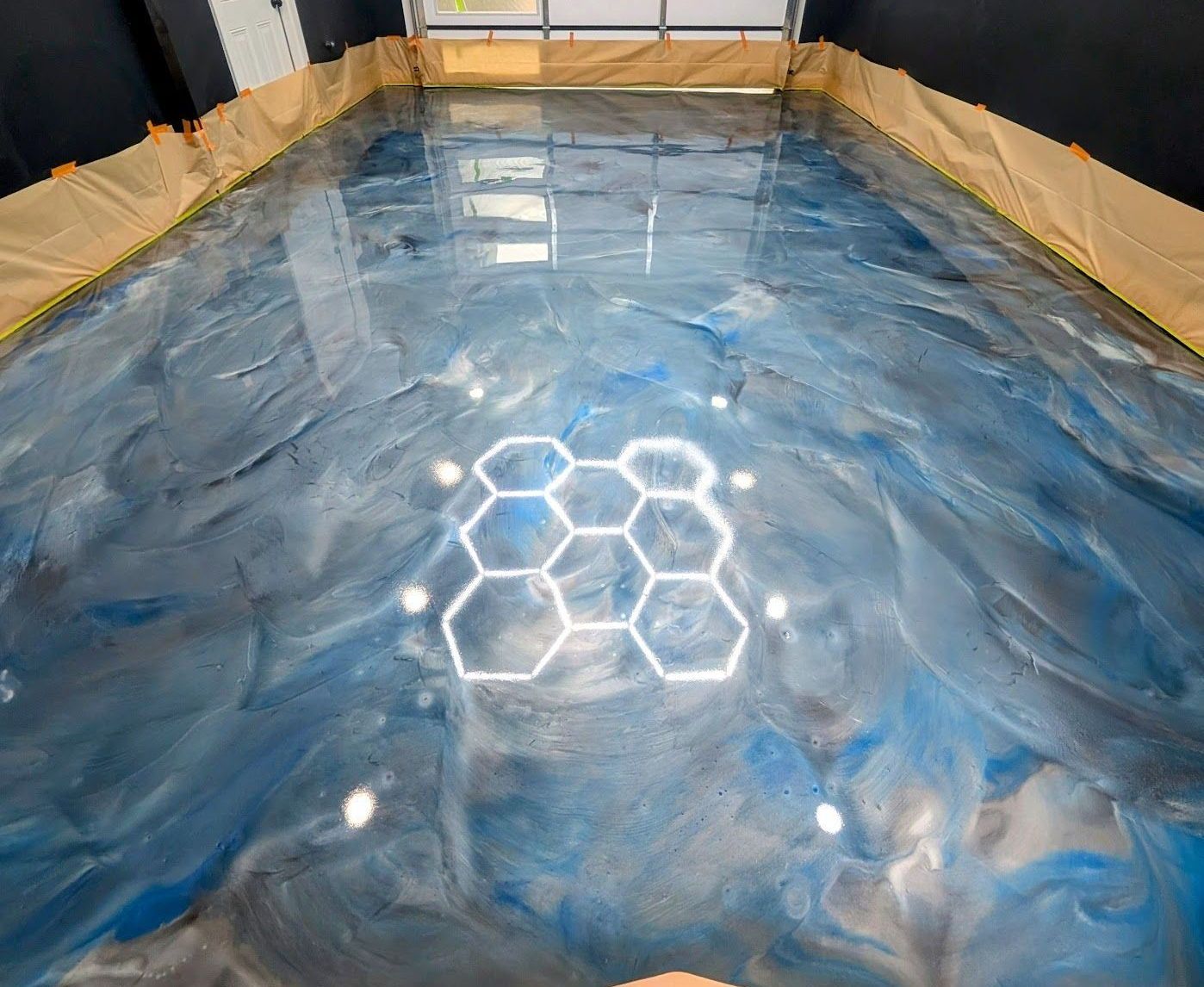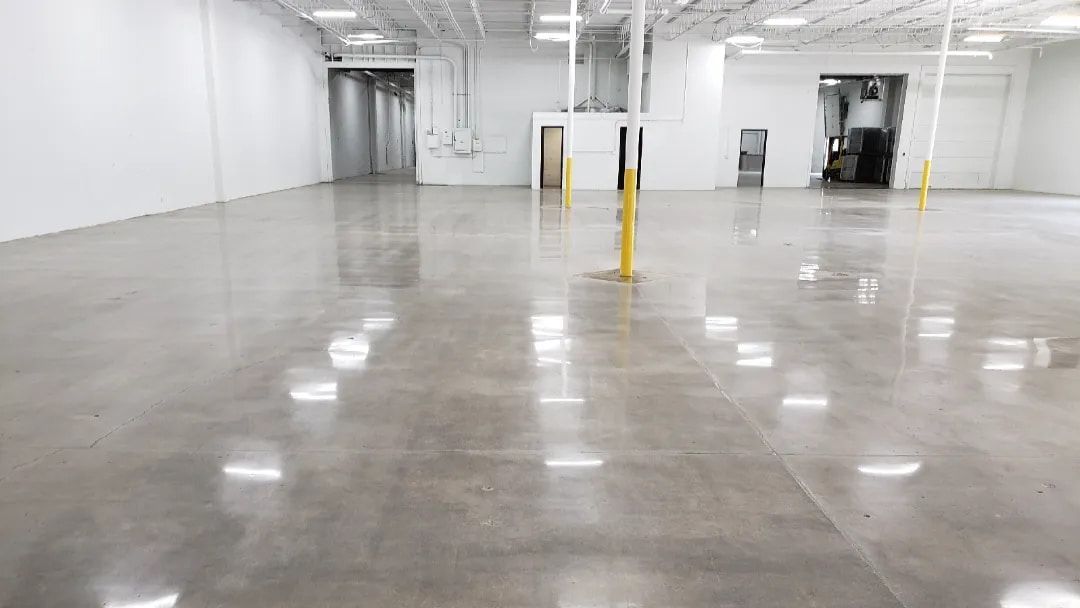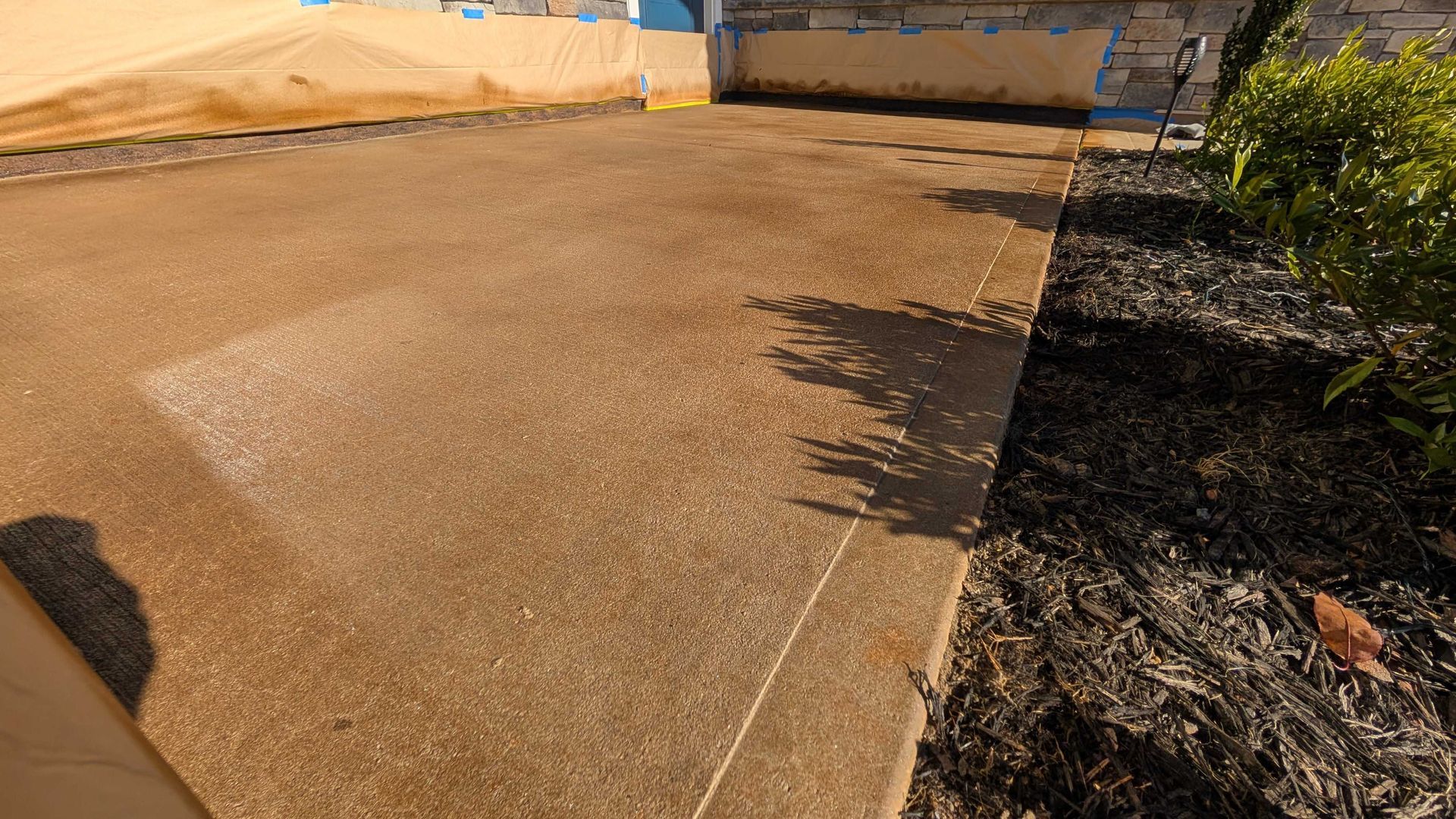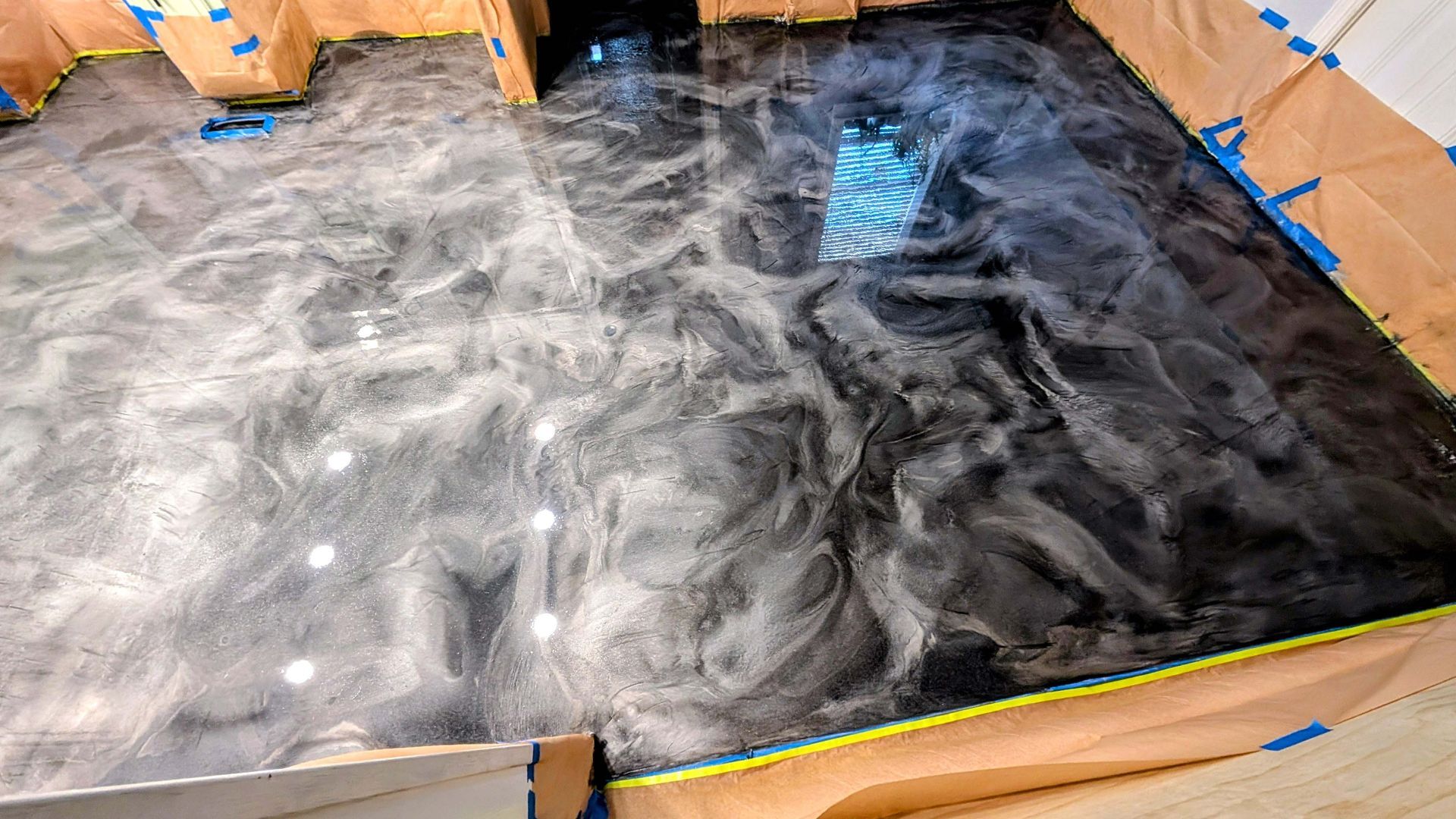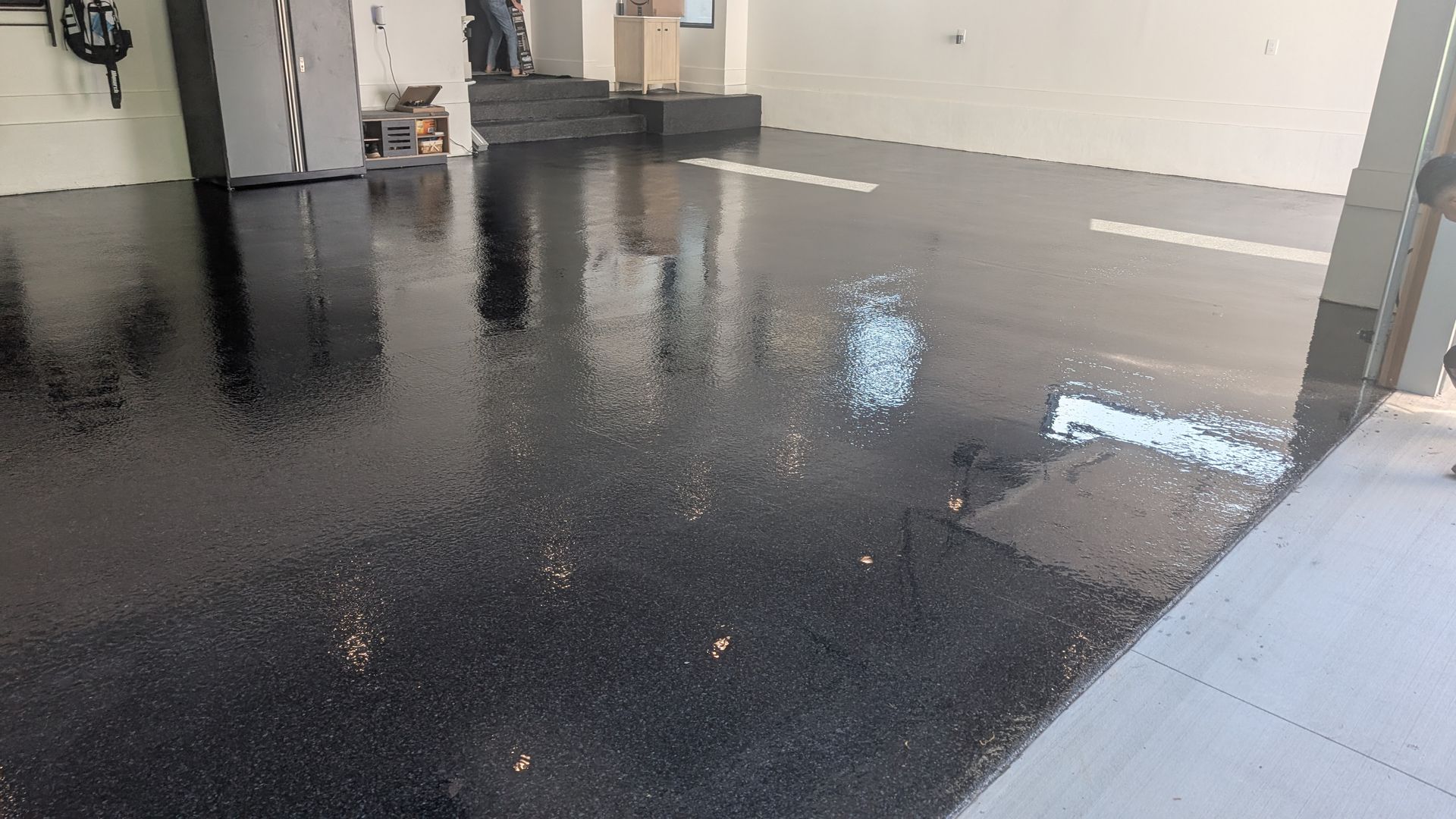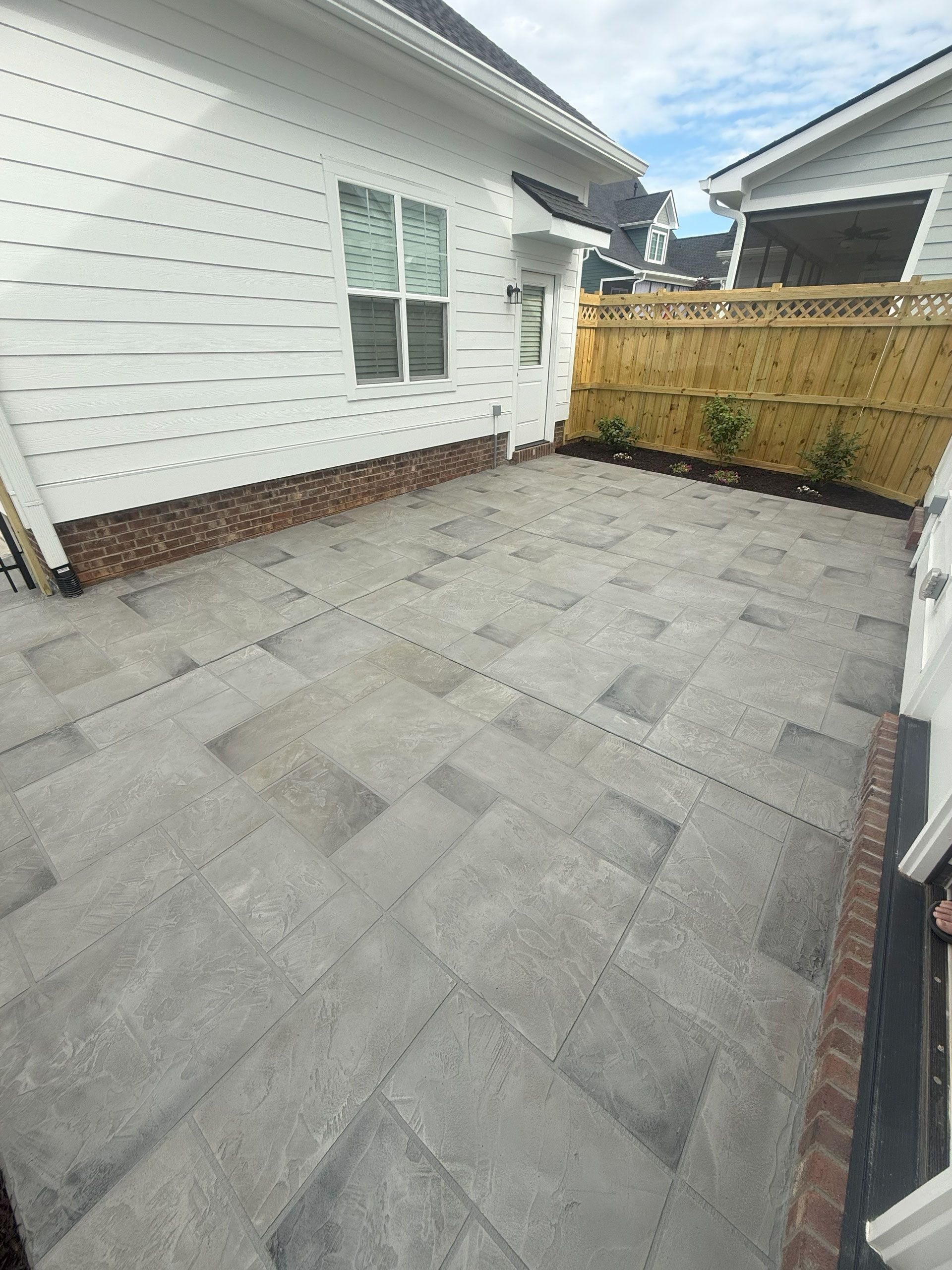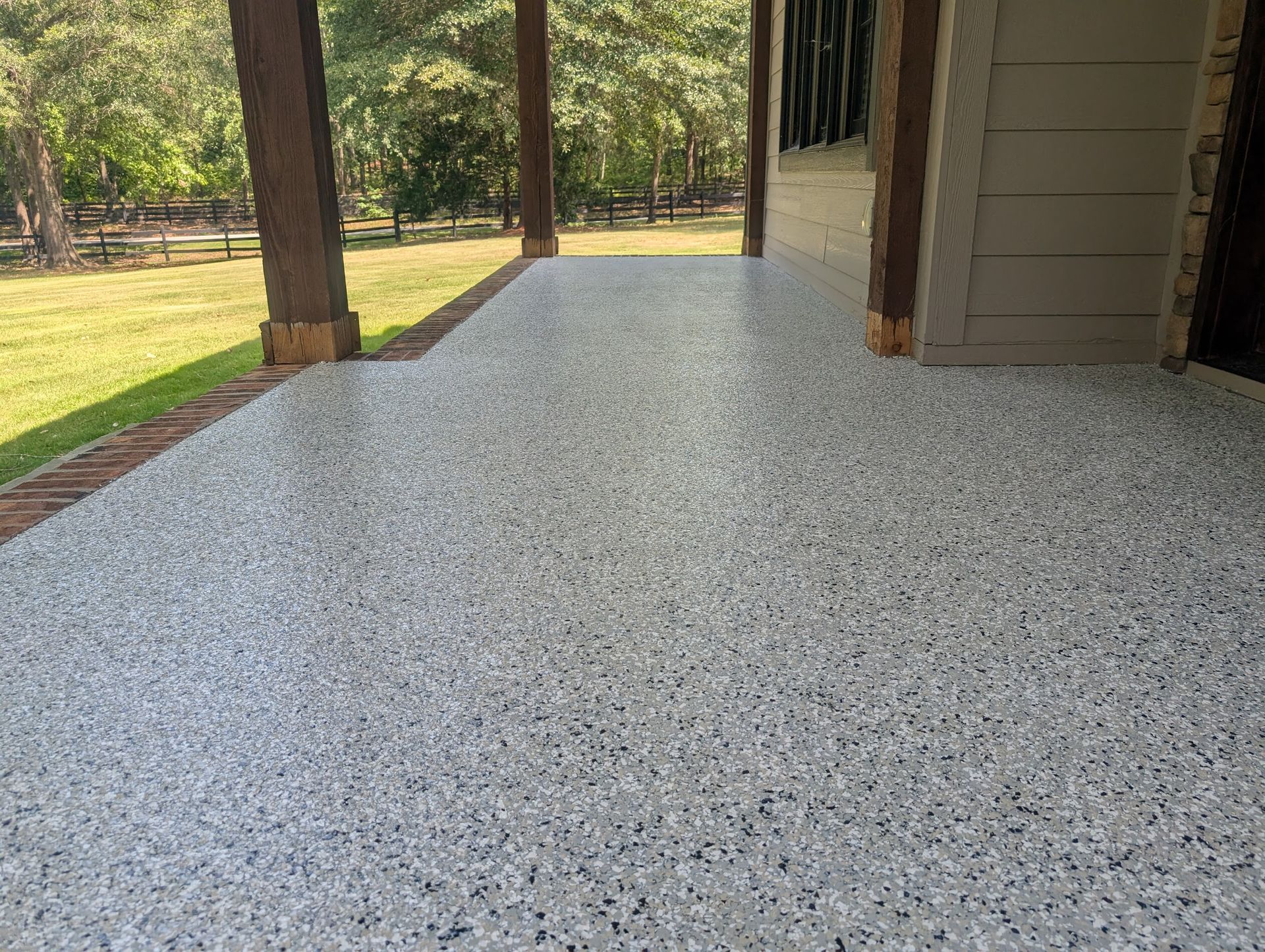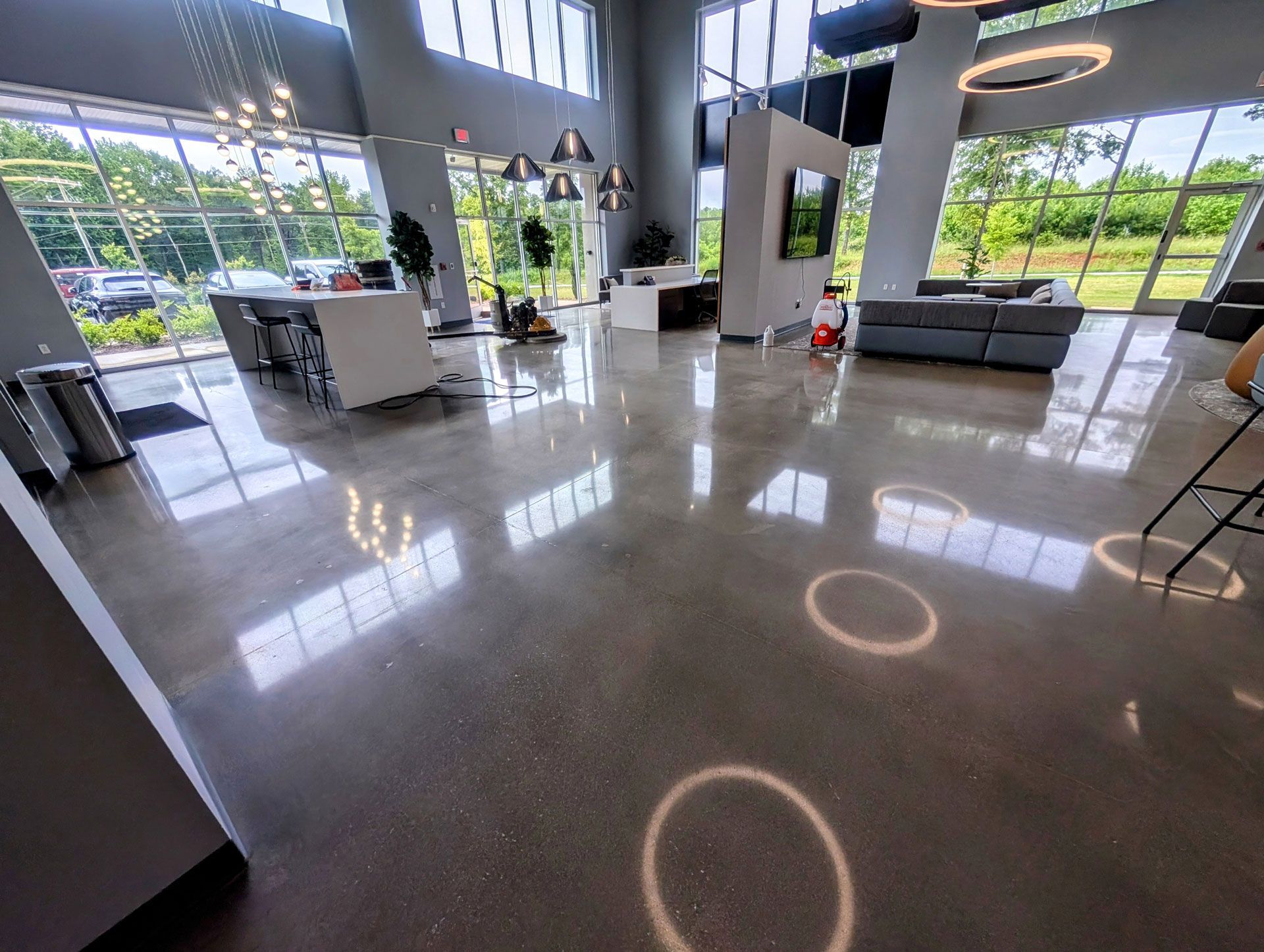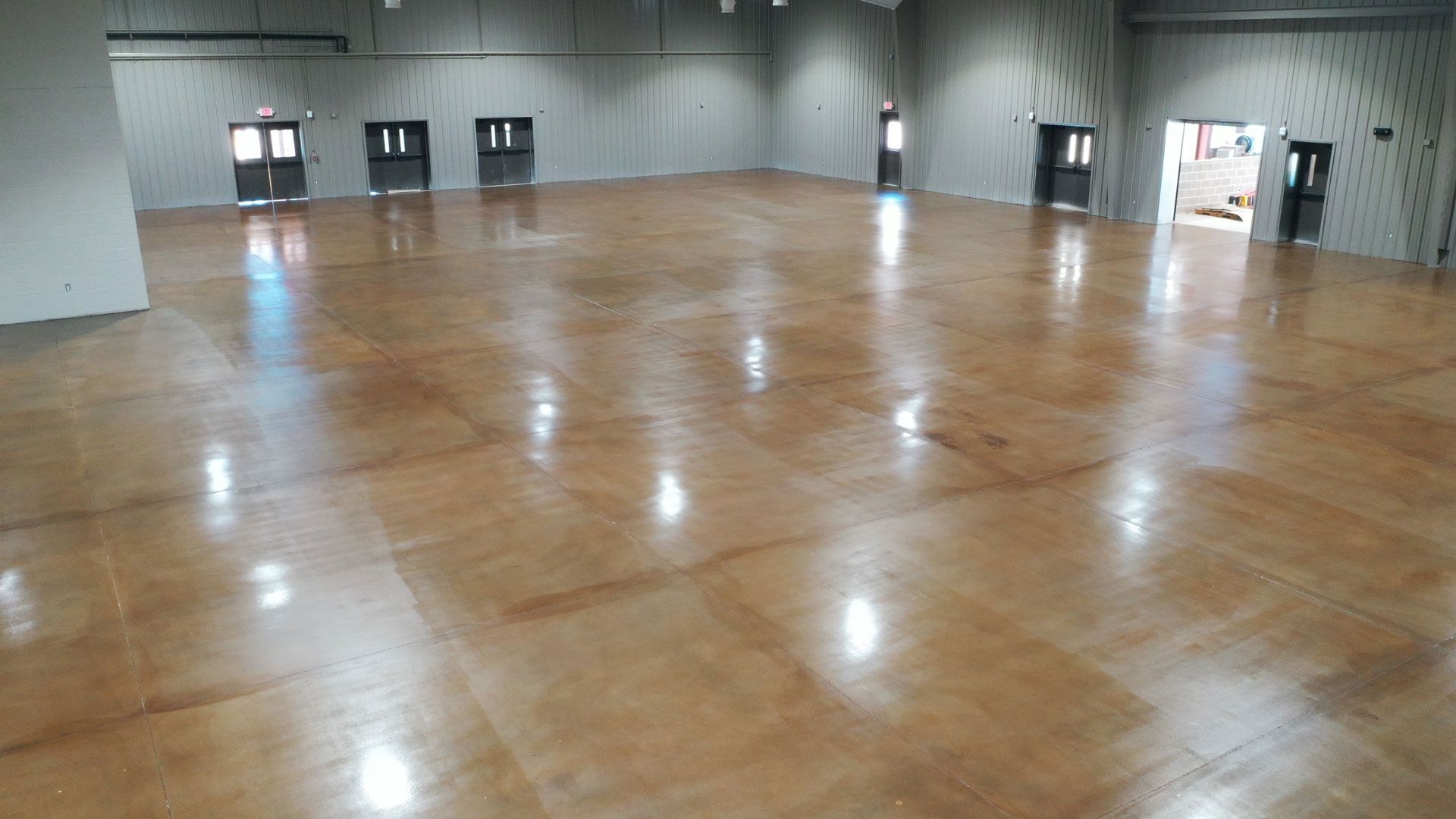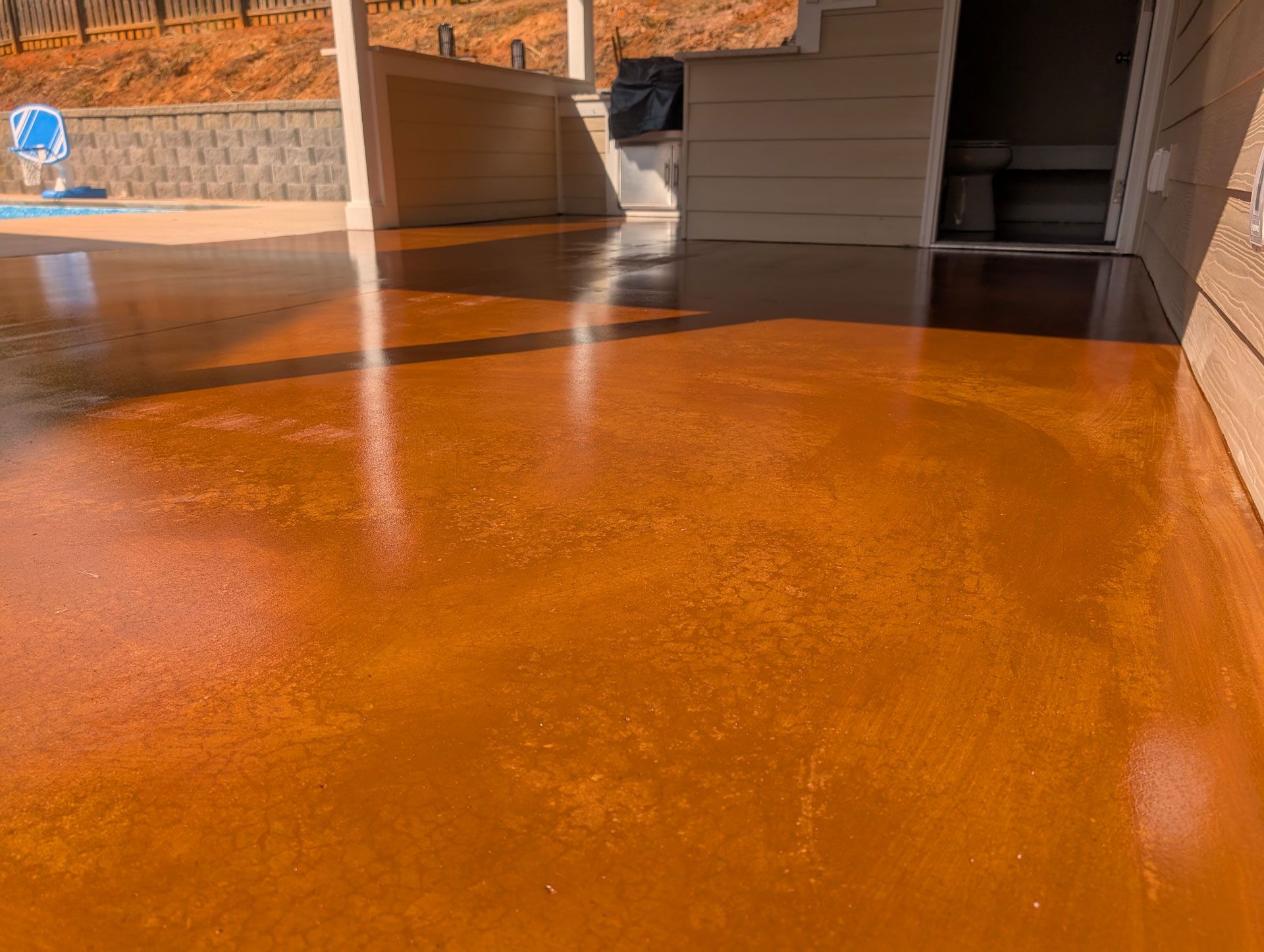Choosing the Right Epoxy Primer for Greenville Homes
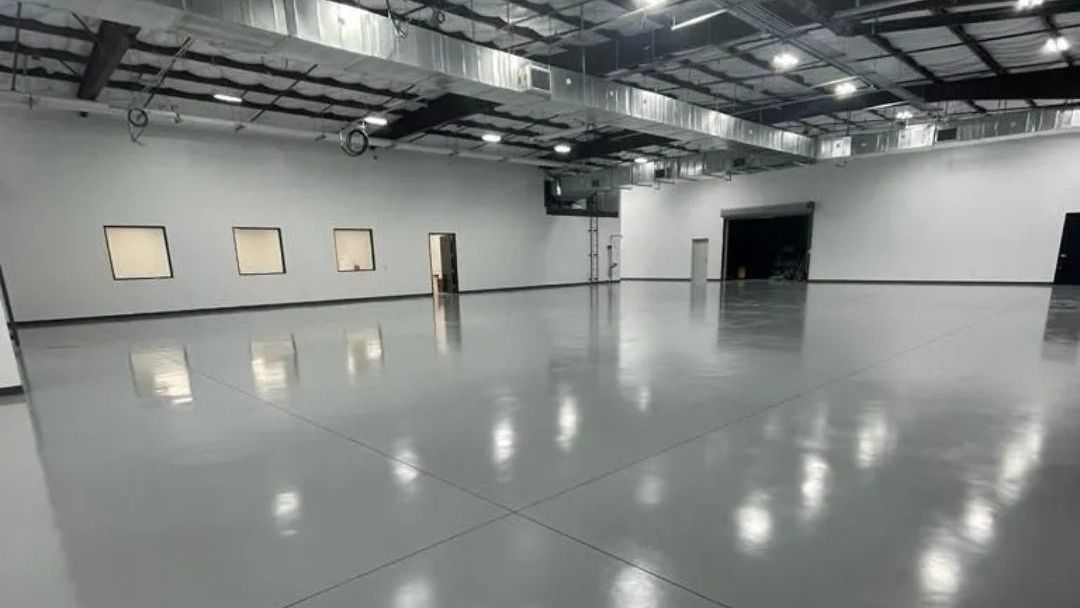
Why Epoxy Primer Matters for Your Floors
If you’re thinking about epoxy flooring, don’t skip the primer! It’s the base layer that ensures your epoxy sticks properly, lasts longer, and resists peeling. Without it, you’re looking at potential cracks, bubbles, and other frustrating issues down the road.
A good epoxy primer locks into the concrete, seals pores, and creates a smooth foundation for the topcoat. If you want a strong, durable, and great-looking floor, picking the right primer is a must.
Types of Epoxy Primers
There are several types of epoxy primers, and each serves a different purpose. Choosing the right one depends on your specific needs.
1. Penetrating Epoxy Primer
- Best for porous concrete.
- Soaks deep into the surface for superior adhesion.
- Helps prevent moisture-related issues.
2. Water-Based Epoxy Primer
- Environmentally friendly and low in odor.
- Dries quickly and is easy to apply.
- Works well for indoor residential areas.
3. Solvent-Based Epoxy Prime
- Extremely durable and provides excellent adhesion.
- Ideal for garages and industrial spaces.
- Requires proper ventilation during application.
4. Moisture Barrier Epoxy Primer
- Essential for concrete prone to moisture problems.
- Prevents bubbling, peeling, and mold growth.
- Perfect for basements and high-humidity areas.
How to Choose the Right Epoxy Primer
Picking the right primer isn’t complicated if you know what to look for:
- Consider Your Space – Is it a basement, garage, or living room? Different areas have different needs.
- Check for Moisture Issues – If your floor has high moisture levels, a moisture barrier primer is your best bet.
- Look at Drying Time – Need a quick turnaround? Water-based primers dry faster than solvent-based ones.
- Think About Durability – Heavy traffic areas like garages or commercial spaces need a stronger primer.
Applying Epoxy Primer: Step-by-Step
If you’re planning to DIY your epoxy floor, here’s a basic guide to applying the primer correctly:
Step 1: Clean the Surface
- Sweep, vacuum, and degrease the concrete.
- Remove stains or cracks with a concrete patch.
Step 2: Prep the Concrete
- Lightly grind or acid etch the surface for better adhesion.
- Let it dry completely before applying the primer.
Step 3: Apply the Primer
- Use a roller or sprayer for even application.
- Allow the primer to penetrate and cure fully (typically 4-8 hours).
Step 4: Apply the Epoxy Coating
- Once the primer is dry, roll on your epoxy topcoat.
- Let it cure fully before heavy foot traffic.
DIY vs. Professional Epoxy Installation
Doing it yourself can save money, but it also comes with risks. If you don’t properly prep your floor, your epoxy might not adhere well, leading to peeling and chipping. Professional installers ensure the right primer is used and applied correctly for long-lasting results.
For expert epoxy flooring installation in Greenville,
Zachary Daniel Concrete is the go-to choice!
Q&A: Everything You Need to Know About Epoxy Primers
How do I know if I need an epoxy primer?
If you want long-lasting, professional-quality epoxy floors, using a primer is highly recommended. It helps with adhesion and prevents future issues like peeling.
Can I apply epoxy without a primer?
Technically, yes—but it’s risky. Without a primer, your epoxy might not bond properly, leading to a weaker finish.
How long does epoxy primer take to dry?
Most primers take 4-8 hours to dry before you can apply the topcoat.
Can I use any epoxy primer for my garage?
Not all primers are the same! For garages, a solvent-based or penetrating epoxy primer is best for durability.
How long do epoxy floors last with primer?
A properly primed and sealed epoxy floor can last 10-20 years, depending on wear and maintenance.
